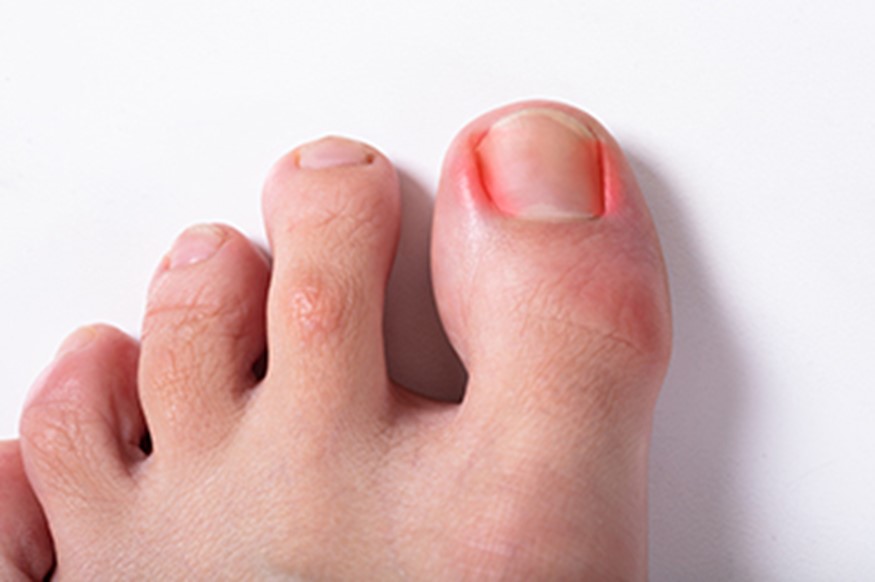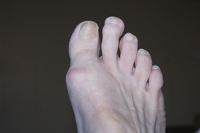 When you have an ingrown toenail, it means that the edge of the nail is growing into the skin around it. A podiatrist, who is a foot doctor, has several approaches to treatment, which can range from conservative to surgical. A podiatrist may perform a nail-lifting procedure by using cotton or gauze to separate the nail edge from the skin. If the ingrown toenail keeps coming back or is severe, a podiatrist can also perform a small surgery. This usually involves removing a part of the nail and sometimes a bit of the skin around it to stop the nail from growing into the skin again. The podiatrist can make sure you're comfortable during the procedure by using local anesthetics. If you’re suffering from an ingrown toenail, it is suggested that you seek treatment with a podiatrist, who can both treat your toe and give you advice on how to prevent the problem from coming back.
When you have an ingrown toenail, it means that the edge of the nail is growing into the skin around it. A podiatrist, who is a foot doctor, has several approaches to treatment, which can range from conservative to surgical. A podiatrist may perform a nail-lifting procedure by using cotton or gauze to separate the nail edge from the skin. If the ingrown toenail keeps coming back or is severe, a podiatrist can also perform a small surgery. This usually involves removing a part of the nail and sometimes a bit of the skin around it to stop the nail from growing into the skin again. The podiatrist can make sure you're comfortable during the procedure by using local anesthetics. If you’re suffering from an ingrown toenail, it is suggested that you seek treatment with a podiatrist, who can both treat your toe and give you advice on how to prevent the problem from coming back.
Ingrown toenails can become painful if they are not treated properly. For more information about ingrown toenails, contact Brent Harwood, DPM from Southeast Podiatry. Our doctor can provide the care you need to keep you pain-free and on your feet.
Ingrown Toenails
Ingrown toenails occur when a toenail grows sideways into the bed of the nail, causing pain, swelling, and possibly infection.
Causes
- Bacterial infections
- Improper nail cutting such as cutting it too short or not straight across
- Trauma to the toe, such as stubbing, which causes the nail to grow back irregularly
- Ill-fitting shoes that bunch the toes too close together
- Genetic predisposition
Prevention
Because ingrown toenails are not something found outside of shoe-wearing cultures, going barefoot as often as possible will decrease the likeliness of developing ingrown toenails. Wearing proper fitting shoes and using proper cutting techniques will also help decrease your risk of developing ingrown toenails.
Treatment
Ingrown toenails are a very treatable foot condition. In minor cases, soaking the affected area in salt or antibacterial soaps will not only help with the ingrown nail itself, but also help prevent any infections from occurring. In more severe cases, surgery is an option. In either case, speaking to your podiatrist about this condition will help you get a better understanding of specific treatment options that are right for you.
If you have any questions please feel free to contact our offices located in Fairhope, Brewton, and Atmore, AL. We offer the newest diagnostic and treatment technologies for all your podiatric needs.








